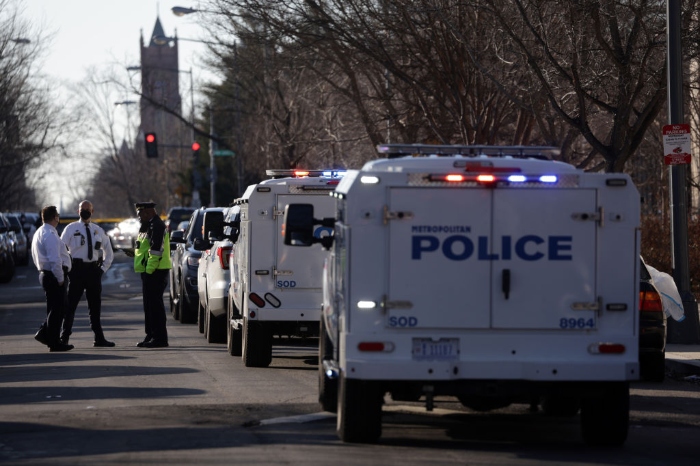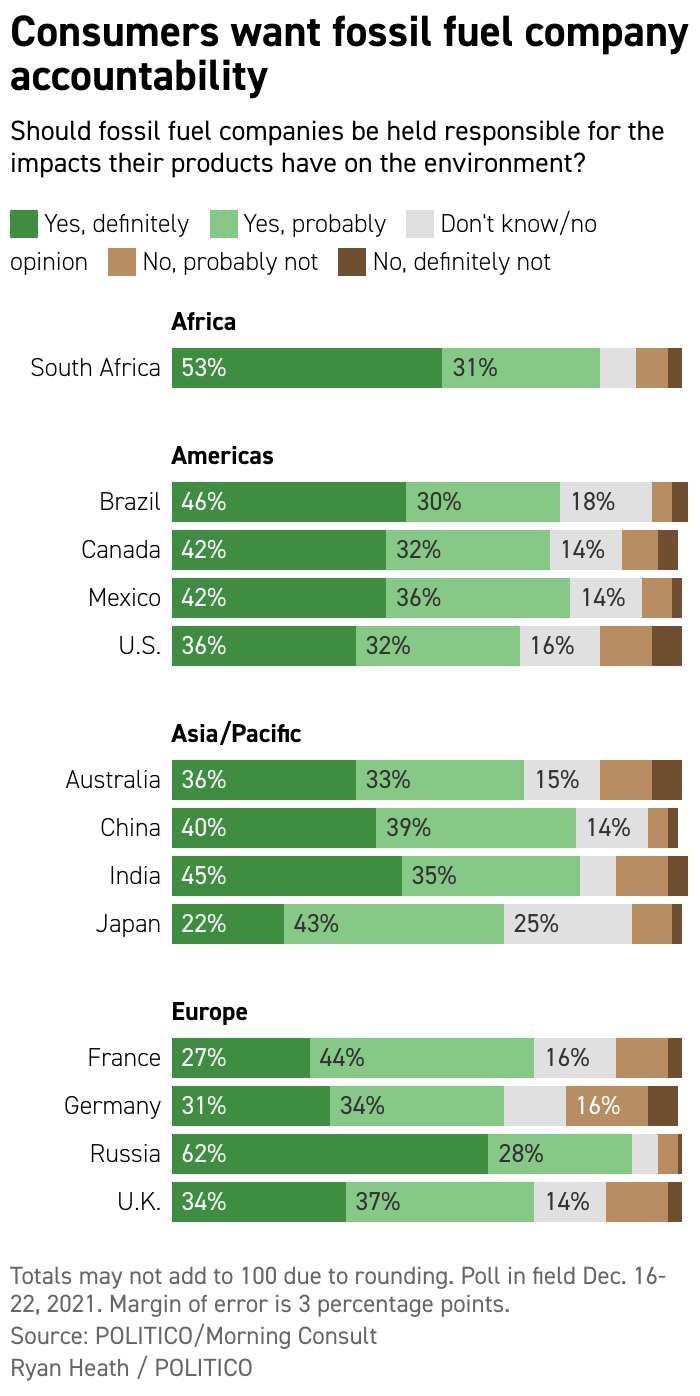
27 January 22
Who Can Step Up and Contribute?
It’s the end of the month and we are fighting tooth and nail to cover our budget. A few good donations will go a long way towards making that possible.
Who can help?
Marc Ash
Founder, Reader Supported News
Sure, I'll make a donation!
If you would prefer to send a check:
Reader Supported News
PO Box 2043 / Citrus Heights, CA 95611
Follow us on facebook and twitter!
Update My Monthly Donation

26 January 22
Live on the homepage now!
Reader Supported News
WE WILL CHALLENGE OUR READERS IF NECESSARY — We must do everything we can do now to challenge and change the perception held by many of our readers that RSN is worth their time, but not their support. Reader Supported News is built from the ground up on community support, and to serve community interests. That is what attracts you. Will you stand with us as we fight?
Marc Ash • Founder, Reader Supported News
Sure, I'll make a donation!
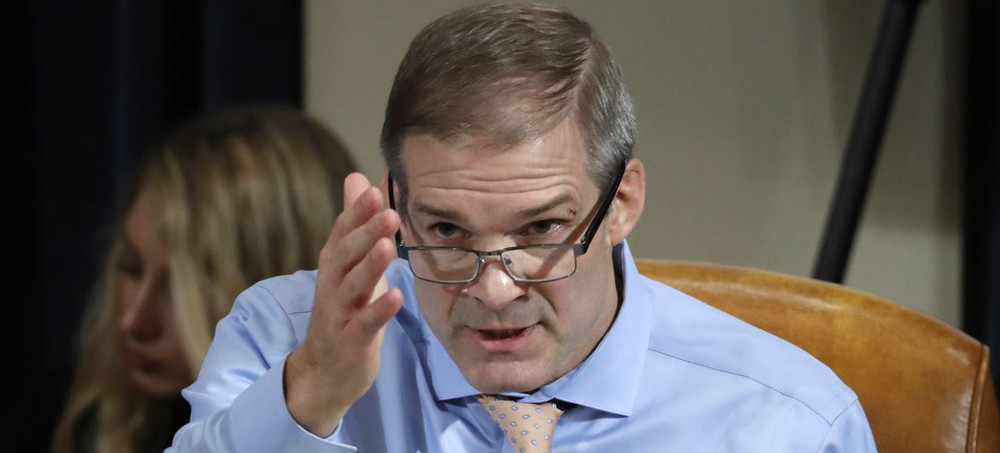
Andy Borowitz | Americans Hope That Jim Jordan's Refusal to Talk Becomes a Trend
Andy Borowitz, The New Yorker
Borowitz writes: "Rep. Jim Jordan's announcement that he is refusing to talk to the January 6th committee has sparked celebrations across the nation, as Americans express hope that the congressman's abstention from talking becomes a sustainable trend."
The article below is satire. Andy Borowitz is an American comedian and New York Times-bestselling author who satirizes the news for his column, "The Borowitz Report."
Rep. Jim Jordan’s announcement that he is refusing to talk to the January 6th committee has sparked celebrations across the nation, as Americans express hope that the congressman’s abstention from talking becomes a sustainable trend.
In interviews from coast to coast, Americans agreed with Carol Foyler, a realtor in Missoula, Montana, who said that Jordan’s refusal to talk “seemed almost too good to be true.”
“Really, the year is off to a terrible start, with Omicron spreading like crazy and whatnot,” she said. “When I saw the thing about Jim Jordan not talking, I was, like, ‘Finally, some good news for a change.’ ”
Harland Dorrinson, an insurance adjuster in Akron, Ohio, agreed that it would be “amazing if Jim Jordan stopped talking,” but also sounded a note of caution.
“I worry a little that this is a New Year’s resolution, like going to the gym or cutting back on carbs,” Dorrinson said. “If it’s February and Jim Jordan still isn’t talking, then it’ll be time to get out the party hats.”
READ MORE
 Protesters call for a 'forensic audit' of the 2020 presidential election. (photo: Getty)
Protesters call for a 'forensic audit' of the 2020 presidential election. (photo: Getty)
US Prosecutors Investigate Republicans Who Sent Fake Trump Electors to Congress
Ed Pilkington, Guardian UK
Pilkington writes: "Federal prosecutors have launched an investigation into the attempt by Republicans in seven presidential battleground states won by Joe Biden in 2020 to subvert the election result by sending bogus slates of Donald Trump electors to Congress."
‘Fraudulent elector certifications’ sent from states won by Biden in effort to subvert election result and declare Trump the winner
Federal prosecutors have launched an investigation into the attempt by Republicans in seven presidential battleground states won by Joe Biden in 2020 to subvert the election result by sending bogus slates of Donald Trump electors to Congress.
The ploy was one of the central tactics used by Trump loyalists as part of the “big lie” that he had defeated his Democratic challenger. The fake slates of electors were forwarded to congressional leaders, who then came under pressure to delay certification of Biden’s victory on 6 January 2021, the day of the Capitol insurrection.
In an interview on CNN, the deputy attorney general, Lisa Monaco, revealed that the justice department has begun an investigation into what she called the “fraudulent elector certifications”. She said the department had received referrals on the matter and “our prosecutors are looking at those”.
Monaco added: “We are going to follow the facts and the law wherever they lead to address conduct of any kind and at any level that is part of an assault on our democracy.”
Fake slates of Trump electors were sent to Congress from seven states in fact won by Biden – Arizona, Georgia, Michigan, New Mexico, Nevada, Pennsylvania and Wisconsin. Of those, two – New Mexico and Pennsylvania – added the caveat that the Trump electors should only be counted in the event of a disputed election.
The other five states sent signed statements to Washington giving the appearance that Trump had won despite clear and verified counts placing Biden on top.
Under America’s arcane presidential election system, US presidents are not chosen directly by voters but indirectly through electoral college votes meted out state by state. Official certificates naming the electors for the winning candidate in each state are then sent to Washington to be certified, in this case on 6 January, when hundreds of violent Trump supporters stormed the Capitol building in an attempt to disrupt the process.
Earlier this month the pro-democracy group American Oversight obtained under freedom of information laws the bogus certificates from all seven states in which Republicans attempted to overturn the election result. The certificate from Georgia, one of the most hotly contested states in 2020, reads: “We, the undersigned, being the duly elected and qualified electors for president and vice president of the United States of America from the state of Georgia …”
The fake statement then carries the names and signatures of 16 fake electors who claimed falsely to have cast their electoral college votes for Trump when in fact they had no legal standing to do so. The move was in direct contravention to the actual vote in Georgia, confirmed in multiple counts, which Biden won by 11,779 votes.
Democratic attorneys general in at least two of the seven states – New Mexico and Michigan – have now asked federal prosecutors to examine whether drawing up the bogus certificates amounted to a crime. Their referrals appear to have triggered the DoJ’s investigation.
The fact that Republicans left a paper trail by sending their phony certificates to both Congress and the National Archives suggest that they may now face legal peril. The House committee investigating the January 6 insurrection has also recently begun to focus on the fake Trump electors, and particularly those who organized the plot.
A figure of special interest is Rudy Giuliani, who acted as a lawyer for the Trump campaign and who has been reported to have spearheaded the fake elector strategy. The January 6 committee sent Giuliani a subpoena letter earlier this month specifically referring to his efforts instigating the ploy.
Another area of intense interest is the draft letter prepared in December 2020 by Jeffrey Clark, a relatively lowly justice department official, who tried to persuade Georgia and six other states won by Biden to call back their electors from Congress and consider replacing them with Trump electors. The letter was never officially sent after the acting US attorney general, Jeffrey Rosen, refused to play ball.
The fake electors tactic was also central to the election subversion strategy laid out for Trump by the conservative lawyer John Eastman. In a now notorious two-page memo handed to Trump and the then vice-president, Mike Pence, in the Oval Office, Eastman argued that Pence could block the certification of Biden’s victory on 6 January.
Pence had the constitutional role of presiding over the joint session of Congress that would certify the election results – a process usually considered purely ceremonial. But Eastman advised him that when he opened the electoral college ballot from Arizona he should announce that “he has multiple slates of electors, and so is going to defer decision on that”.
By “multiple slates”, Eastman was referring to the official slate of electors returned by Arizona in favor of Biden who won the state by 10,457 votes and the fake slate of Trump electors that is now under federal investigation.
READ MORE
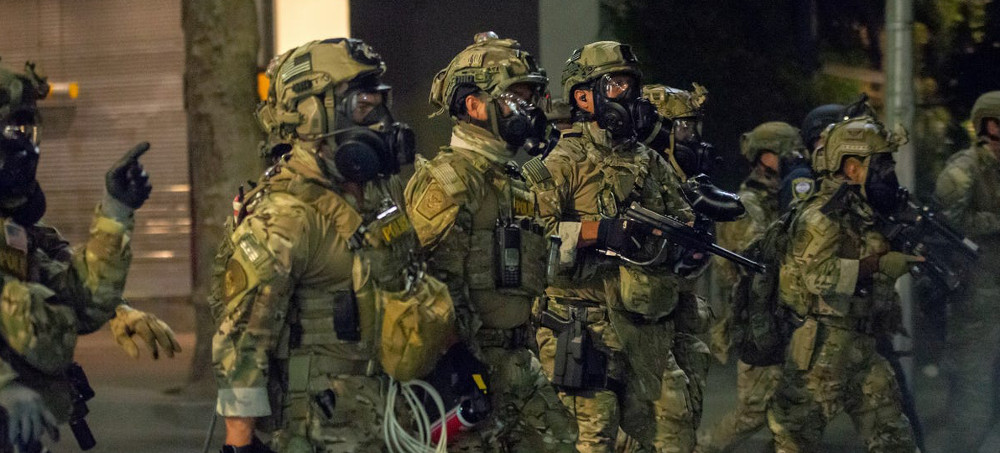 'The Department of Homeland Security is looking the other way in the face of rising far-right extremism.' (photo: Getty)
'The Department of Homeland Security is looking the other way in the face of rising far-right extremism.' (photo: Getty)
Andrea Mazzarino | The Pentagon We Don't Think About
Andrea Mazzarino, TomDispatch
Mazzarino writes: "What does it mean that an employee of the Department of - yes! - Homeland Security can openly and proudly promote a homegrown militia whose members have threatened and attacked American lawmakers and police?"
It was more than 20 years ago, but I still remember the shock I felt when the word “homeland” first entered our culture in a big way. That was soon after the 9/11 attacks and, in the end, it would be attached to what became known as the Department of Homeland Security. For me — and I wasn’t alone — that word had a distinctly un-American ring to it. It brought to my mind heimat, the equivalent term the Nazis used for Germany. True, the word had been used before here. Only days earlier, for instance, Congressman Ike Skelton (D-MO) had plugged the creation of “a comprehensive homeland security strategy.” Nonetheless, that was rare indeed and barely noticed until, six days later, the World Trade Center towers in New York City were destroyed.
Still, homeland? Really? The United States of America? Unfortunately, in retrospect, as TomDispatch regular Andrea Mazzarino, co-founder of the Costs of War Project, reminds us today, there was something both eerily strange and all too grimly appropriate in the use of that word for the Department of Homeland Security. It should have been (but sadly wasn’t) a reminder that there was something truly out of the ordinary about organizing what, as Mazzarino suggests, would become a second Pentagon, thanks to the hijacking of three American planes by 19 mostly Saudi terrorists in the name of al-Qaeda. That small terror outfit was, of course, run by a rich Saudi named Osama bin Laden. He would, I suspect, have been thrilled to death (so to speak) to have goaded this country into both launching a series of disastrous conflicts under the label of the Global War on Terror that would, in fact, spread terrorism across the Greater Middle East and Africa. My best guess: he would have been no less thrilled to have convinced us to pour yet more money that could have been spent so much better elsewhere into “national security.”
More than 20 years later, I think it’s safe to say that the “homeland” is anything but secure and not because of Saudi terrorists either. These days, the terror, as Mazzarino suggests, is all too close to home. Tom
-Tom Engelhardt, TomDispatch
The Pentagon We Don’t Think About
A New Perspective on the Department of Homeland Security
A relative of mine, who works for the Department of Homeland Security (DHS) compiling data on foreigners entering the United States, recently posted a curious logo on his Facebook profile: a white Roman numeral three on a black background surrounded by 13 white stars. For those who don’t know what this symbol stands for, it represents the “Three Percenters,” a group that the Anti-Defamation League has identified as an anti-government militia. Its members have a record of violent criminal attacks and strikingly partisan activity, including arrests and guilty pleas in connection with the bombing of a Minnesota mosque in 2017 and appearances as “guards,” carrying assault-style weaponry, at several pro-Trump rallies. Six of its members have been charged with plotting to assault the U.S. Capitol on January 6, 2021.
When my husband, a Naval officer of nearly 20 years, saw this symbol on a family member’s Facebook page, he pointed out to me that, despite the Hatch Act, created to ensure nonpartisanship among federal workers, DHS employees are not always held accountable for exercising “free speech” that would violate that law. The Three Percenters claim that they’re protesting government tyranny. The roman numeral itself refers to a debunked claim that only 3% of Americans in the original 13 colonies took up arms against the British in the Revolutionary War.
What does it mean that an employee of the Department of — yes! — Homeland Security can openly and proudly promote a homegrown militia whose members have threatened and attacked American lawmakers and police? Sadly enough, this fits all too well an agency that national security expert Erik Dahl of the Costs of War Project recently described as looking the other way in the face of rising far-right extremism. That includes anti-government, white-supremacist, and anti-Semitic groups, armed and otherwise. Such right-wing militias and extremist outfits, as Dahl makes clear, have killed an increasing number of people in this country since the 9/11 attacks, significantly more than groups inspired by foreign Islamist organizations like al-Qaeda. And yet, in both its public statements and policies, the domestic agency created after the 9/11 attacks to keep this country “secure” has consistently focused on the latter, while underestimating and often ignoring the former.
How U.S. Security Changed after 9/11
The Department of Homeland Security was quite literally a product of 9/11 and so was formed in a political climate of nearly unwavering support for anything Congress or the White House proposed to combat extremist violence. It officially arrived on the scene just weeks after the 9/11 attacks as the “Office of Homeland Security” when President George W. Bush appointed former Pennsylvania Governor Tom Ridge as its first director. By 2002, now a “department,” it would bring together 22 different government agencies, including the Transportation and Security Administration, Customs and Border Protection, the Immigration and Naturalization Service, and the Federal Emergency Management Agency.
Its mission, as stated in a proposal by President Bush, was to “protect our homeland… against invisible enemies that can strike with a wide variety of weapons.” In the end, that new department would represent the largest reorganization of government since World War II. Though few here think of it that way, it would prove to be a second Pentagon and, over the years, would be funded in a similarly profligate fashion.
Under such circumstances, you won’t be surprised to learn that its creation also led to a striking amount of redundancy in the national security establishment. In 2004, Congress created the Office of the Director of National Intelligence to provide the president with an overview of all intelligence efforts. According to Dahl, the director of national intelligence and the organizations he or she oversees are supposed to stand on the front lines of combating violent attacks on U.S. soil. Law enforcement groups like the Joint Terrorism Task Forces (under the FBI) have, in fact, thwarted the largest number of potential terrorist attacks since 9/11 and, at the moment, seem to be focused on the most significant threats to this country, which are all too internal. For example, a January 2022 joint statement by senior FBI and Justice Department officials warned that “the threat posed by domestic violent extremism and hate crimes is on the rise” and that FBI investigations of suspected domestic violent extremists have more than doubled since the spring of 2020.
In February 2020, even Christopher Wray, President Trump’s FBI director, testified before the House Judiciary Committee that violent extremists targeting people based on their race or ethnicity “were the primary source of ideologically-motivated lethal incidents and violence in 2018 and 2019, and have been considered the most lethal of all domestic extremist movements since 2001.” Of the 16 (unsuccessful) terrorist attacks on U.S. soil in 2020, 14 were prevented by police or most often FBI agents or those from Joint Terrorism Task Forces. For example, in March 2020, the FBI shot and killed a man in Missouri while attempting to arrest him. He was under investigation for planning to bomb a hospital to protest his city’s Covid-19 lockdown measures.
To be sure, there have also been threats from foreign terrorist organizations and those who act at their behest. Take, for example, the December 6, 2019, attack of a Saudi-born military trainee directed by al-Qaeda in the Arabian Peninsula. He managed to kill three sailors at Naval Air Station Pensacola in Florida. According to Dahl, since 9/11, there have been 146 thwarted attacks planned by foreign terrorist groups or those inspired by them here. The vast majority were prevented by law enforcement sting operations or tips from the public.
Meanwhile, DHS is often not focused on threats of violence at all, but on responding to allegations of mistreatment by its own officers toward people in their custody or toward one another. A list of 2019 and 2020 congressional testimony by DHS officials typically included topics like monitoring reports on terrible conditions in Immigration and Customs Enforcement detention facilities, on the mistreatment and deaths of immigrant children in Customs and Border Patrol custody, or on harassment and bullying within the Coast Guard.
When it came to terrorism, prior to the January 6, 2021, assault on the Capitol, DHS officials were primarily focused on their roles as gatekeepers for those entering or traveling within the U.S. In testimony they gave, there was no mention at all about the rise of domestic extremists and the risk they might pose to American lives and property. Typically, in public remarks at American University in March 2019, then DHS Secretary Kirstjen Nielsen stated that Islamist militants pose the primary terrorist threat to the U.S.
On January 5, the day before the Capitol uprising, DHS’s Office of Intelligence and Analysis published a summary account that oh-so-presciently stated: “Nothing significant to report.” Never mind that law enforcement figures had recently been sharing numerous tips on the subject of domestic terrorism, including from soon-to-be protesters exchanging maps of the Capitol’s interior on social media.
Dangers Ahead
While some amount of redundancy is certainly to be expected in government, the level introduced by the Department of Homeland Security should raise issues that go beyond the logistical problem of too many cooks in the kitchen. After all, what does it say about a department created to make this country more secure that just about all those “cooks” focus on only one potential danger, while ignoring the main and all-too-obvious “security” threat to American lives right now?
It’s simple really. Though the word in its name is “homeland,” as in “domestic,” its focus is almost solely on those who come from outside our borders, both jihadist groups like al-Qaeda and ISIS that might indeed plot to launch or at least promote terror attacks here and — a particular emphasis of the Trump years — immigrants illegally crossing our border with Mexico.
Even more sinister, when it comes to redundancy, our government now has a second armed entity that can direct its force in an arbitrary way. Twenty years after the 9/11 attacks, the forever-war and new-Cold-War-focused Pentagon is, of course, staggeringly over-funded, even if its rank and file are — take my word for it as a military spouse — ever more depleted from our endless wars abroad, the pandemic ravaging this country, and relentless training. Meanwhile, since 9/11, we’ve overfunded what quickly became a second Pentagon, the Department of Homeland Security, capable of focusing on whatever it considers to be most politically expedient.
During the Trump administration, DHS suppressed those populations the president and his advisers deemed the greatest threats to this country, even if that meant young children whose families were seized at the southern border. No less chillingly, during the Trump presidency, DHS Acting Deputy Secretary Ken Cuccinelli acknowledged that the agency had sent its employees to monitor and suppress protests in Portland, Oregon, against the police killing of George Floyd. DHS officers began patrolling that city’s streets in unmarked vehicles and detaining protesters allegedly without even telling them why in order, according to Cuccinelli, to “move them to a safe location for questioning.” However, a November 2020 report issued by the DHS’s own inspector general concluded that the people deployed to Portland had no authority (or training) to act as law enforcement officers and had engaged in unconstitutional, violent attacks on protesters, journalists, members of watchdog groups, and bystanders.
All of this should be a reminder of what life in another Trump (or Trumpist) presidency in these (dis)United States could be like for a DHS that already ignores the real potential terrorists in this country. Count on one thing: any regard for civil liberties and human rights would undoubtedly go out the window.
If such a president were to use the bully pulpit to denigrate anyone who disagreed with him or whose way of life differed from his own, then imagine what a Department of Homeland Security that, even now, ignores the deepest security threat to this country, might be like. In a New Yorker article in 2020, journalist Masha Gessen pointed out that “homeland” was, from the start, “an anxious, combative word: it denotes a place under assault, in need of aggressive defense from shape-shifting dangers.” She argued that its sudden use by our government, post-9/11, suggested a move from defending ourselves against other militaries towards defending ourselves against individuals who might, in the end, threaten a leader’s power. And this, Gessen pointed out, is the premise on which secret police forces are built.
Before entering the mental-health field, I spent years living and working as an activist in Russia. Its Federal Security Service, or FSB, has used intimidation, detention without charge, and extra-judicial execution to show everyone from opposition figures to feminist rock bands the might of President Vladimir Putin. Its focus has been on keeping people from challenging the status quo of a patriarchal nation expected to show unquestioning loyalty to its strongman ruler.
The terror that many Russians feel about their internal police is, of course, rooted in history. The FSB’s predecessor, the Soviet Union’s notorious KGB, wielded similar violence against many whose free expression was deemed to threaten state power. Most friends and acquaintances of mine in Russia have relatives in older generations who were taken away, never to be seen again, for reasons as subjective as publishing a poem or talking to the wrong neighbor on the street.
As I reflect on how far state oppression can go, I only hope that the U.S. will never again see a leader who allows federal power to be used in such an arbitrary way. Yet, thanks in part to the Department of Homeland Security, I’m all too aware that this country is remarkably well set up for just such a figure.
National (In)Security?
It should be baffling to us all that the organization tasked with protecting our homeland was unable to avert the most threatening violent attack on our democratically elected government since Confederate troops advanced on Washington, late in the Civil War.
A friend and Park Police officer who was stationed at the Capitol on January 6th recalls being more scared than she had ever been in her 20 years of service. She and some 150 colleagues who specialize in crowd control around national infrastructure lacked a memorandum of understanding with the Capitol Police that would have allowed them to help defend Congress. She said that, as far as she could see, January 6th was a failure of leadership more than anything else because capable people had not been given permission to act.
If we and our lawmakers don’t hold the Department of Homeland Security — a creation of this country’s disastrous war on terror — to account for its actions (or lack of them) and question not just what it does but why it even exists, then I fear for our future. After all, what 9/11 really left us with was not just those destroyed towers in New York and a damaged Pentagon, but our own second Pentagon, a “defense” department capable of being aimed in the worst way possible at the American people. The problem is that the enemy of the future for DHS may very well be the American people — and not just the terrorists among us either.
And, in truth, none of us should be surprised. After all, the original proposal for that agency called for the targeting of invisible enemies capable of striking the “homeland.” In other words, the enemy could be anyone. It could, in fact, be the Department of Homeland Security. And that should concern us all.
Follow TomDispatch on Twitter and join us on Facebook. Check out the newest Dispatch Books, John Feffer’s new dystopian novel, Songlands (the final one in his Splinterlands series), Beverly Gologorsky’s novel Every Body Has a Story, and Tom Engelhardt’s A Nation Unmade by War, as well as Alfred McCoy’s In the Shadows of the American Century: The Rise and Decline of U.S. Global Power and John Dower’s The Violent American Century: War and Terror Since World War II.
READ MORE
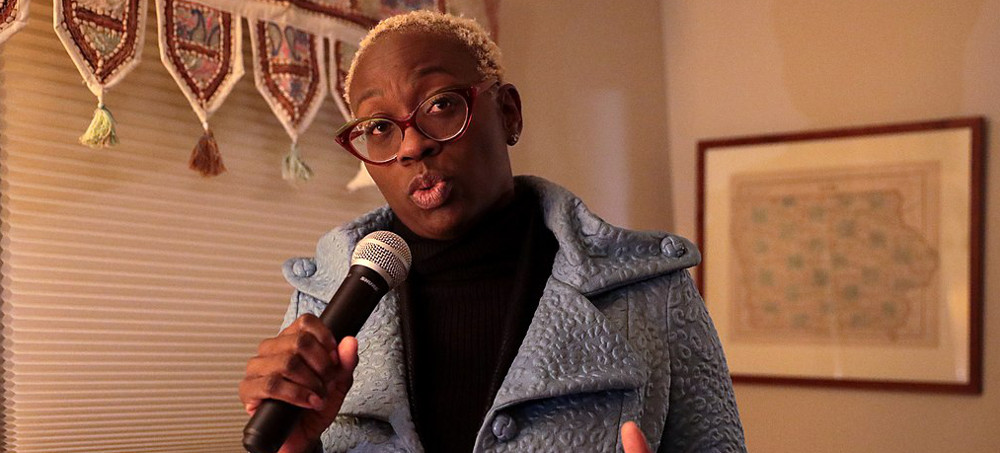 Activist Nina Turner is officially mounting a 2022 bid for Congress that will likely set up a rematch against incumbent Rep. Shontel Brown. (photo: Reuters)
Activist Nina Turner is officially mounting a 2022 bid for Congress that will likely set up a rematch against incumbent Rep. Shontel Brown. (photo: Reuters)
Nina Turner Mounts Likely Rematch Bid Against Rep. Shontel Brown in Ohio
Ursula Perano, The Daily Beast
Perano writes: "Brown and Turner's first showdown during a special election last year split the Democrats along increasingly familiar ideological lines."
Brown and Turner’s first showdown during a special election last year split the Democrats along increasingly familiar ideological lines.
Activist Nina Turner is officially mounting a 2022 bid for Congress that will likely set up a rematch against incumbent Rep. Shontel Brown (D-OH), according to the Plain Dealer, teeing up a moderate vs. progressive showdown in Ohio this spring.
Turner and Brown faced off in 2021 to replace former Rep. Marcia Fudge (D-OH), who left her post to serve as Secretary of Housing and Urban Development. The race was a spectacle of national attention, with Turner’s progressive platform squaring off with Brown’s more moderate strategy.
Turner ran on proposals like Medicare for All and the Green New Deal, drawing progressive backers like Sen. Bernie Sanders (I-VT) and New York’s Rep. Alexandria Ocasio-Cortez to her corner. But Brown, who was supported by House Majority Whip James Clyburn (SC), among others, ultimately won the district’s August 2021 Democratic primary by about 4,300 votes.
Turner has never shied away from mulling on a rematch. In September, she filed a statement of candidacy for a 2022 run, which allowed her to explore a bid against Brown without formally committing to the race. In a December call with Our Revolution, Turner said she was keeping “all options on the table,” adding, “I never stopped doing the work.”
Turner is now relaunching her candidacy just days before the Feb. 2 filing deadline, with Ohio’s Democratic primary a few months away on May 3. While that’s not much time from start to finish, Turner could benefit from the recency of her last campaign and the familiarity of her opponent.
Ohio is currently undergoing redistricting, meaning the district lines have the potential to change. But Ohio’s 11th District, which Brown currently represents and where Turner previously ran, is firmly blue, making a Republican victory highly unlikely.
During Brown’s first year in Congress, she joined the Congressional Progressive Caucus and voted in favor of the Build Back Better proposal and the bipartisan infrastructure framework, among other Democratic priorities.
The Congressional Progressive Caucus’ campaign arm doesn’t endorse opponents of sitting incumbents, but it wouldn’t be unusual for progressive members of Congress to issue individual endorsements of primary challengers.
READ MORE
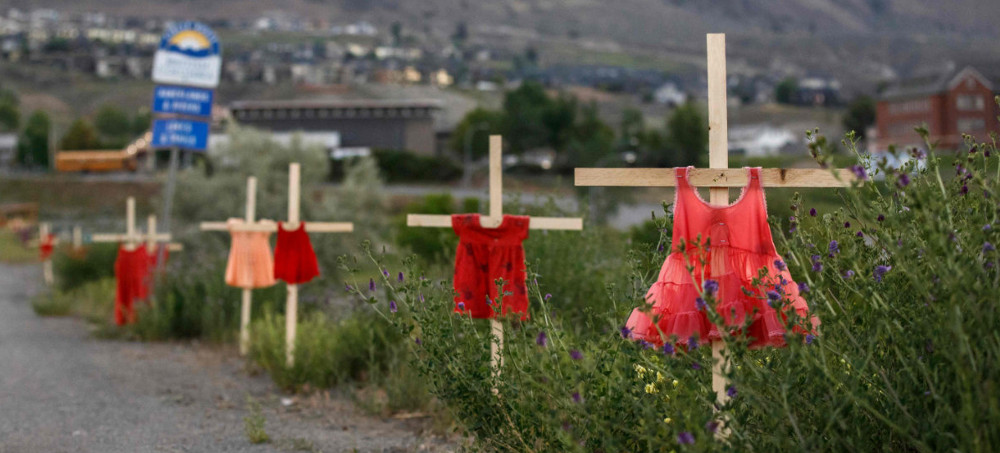 The probe near Williams Lake came after the discovery last May of unmarked graves at another former facility in British Columbia, the Kamloops Indian Residential School. (photo: Cole Burston/Getty)
The probe near Williams Lake came after the discovery last May of unmarked graves at another former facility in British Columbia, the Kamloops Indian Residential School. (photo: Cole Burston/Getty)
Indigenous Community Finds 93 Possible Burial Sites Near Former Canada Residential School
Ellen Francis, The Washington Post
Francis writes: "An Indigenous community in British Columbia has found 93 potential burial sites on the grounds of a former residential school, the latest such discovery in the past year from one of the darkest chapters of Canada's history."
An Indigenous community in British Columbia has found 93 potential burial sites on the grounds of a former residential school, the latest such discovery in the past year from one of the darkest chapters of Canada’s history.
Chief Willie Sellars of Williams Lake First Nation said Tuesday that preliminary findings of an investigation into the St. Joseph’s Mission Residential School and its environs were part of a wider process of healing from scars passed down across generations. “This journey has led our investigation team into the darkest recesses of human behavior,” he told a news conference.
Nearly 150,000 Indigenous children were separated from their families, often by force, between the 1800s and 1990s in an attempt to assimilate them. They were sent to government-funded, church-run schools that prohibited them from speaking Indigenous languages and practicing their traditions. Many faced neglect and abuse.
In a 2015 report, Canada’s Truth and Reconciliation Commission said what happened at the schools was akin to “cultural genocide.” The commission identified at least 4,100 students who died at the schools during that time.
The probe near Williams Lake came after the discovery in May of the probable unmarked graves of Indigenous children at the former Kamloops Indian Residential School in British Colombia, once the largest in Canada. The discovery was announced at 215 graves; after further investigation, the number was revised down to 200.
Many residential schools were shut down in the 1970s. The last one closed in 1997.
Officials said on Tuesday the latest 93 sites showed “reflections” indicating “potential human burials” after using ground-penetrating radar on 14 of the hundreds of hectares of the school grounds, though excavation would be necessary to confirm their presence.
The investigation into St. Joseph’s Mission included interviews with survivors that revealed stories of disappearances, murders, torture, starvation and rape, along with attempts to suppress the reports, Sellars said.
The findings at the residential school “where three generations of my family attended is traumatizing, yet it also serves as validation of the stories told,” said Phyllis Webstad, who founded a nonprofit for reconciliation.
“I have often thought of this day,” she wrote in a statement. “I grieve for all who never made it.”
In a tweet on Tuesday, Canadian Prime Minister Justin Trudeau shared the number of a National Indian Residential School Crisis Line set up to support former students. “Today’s news from Williams Lake First Nation brings a lot of distressing emotions to the surface,” he said.
READ MORE
 Lt-Col Paul-Henri Sandaogo Damiba turned on his political masters in Burkina Faso by seizing power in a coup. (photo: AFP)
Lt-Col Paul-Henri Sandaogo Damiba turned on his political masters in Burkina Faso by seizing power in a coup. (photo: AFP)
Burkina Faso: The Young Soldier Who Overthrew His President
BBC News
Excerpt: "He anointed himself president just three weeks after celebrating his 41st birthday, making him the latest man in camouflage to overthrow a government."
Trained by the US and France in warfare, the young Lt-Col Paul-Henri Sandaogo Damiba turned on his political masters in Burkina Faso by seizing power in a coup.
He anointed himself president just three weeks after celebrating his 41st birthday, making him the latest man in camouflage to overthrow a government, and raising fears that what UN chief António Guterres last year called the "epidemic of coups" - in countries ranging from Sudan to Myanmar - could continue into the new year.
Sporting a red beret, Lt-Col Damiba sat impassively - as Reuters news agency put it - in a low-lit studio on Monday evening, leaving a captain to announce on state television that he had toppled President Roch Kaboré, a former banker who is now his prisoner.
Holding the grand title of "President of the Patriotic Movement for Safeguarding and Restoration", Lt-Col Damiba forms the West African triumvirate of military rulers - along with Guinea's charismatic Col Mamady Doumbouya, who was also born in 1981, and Mali's bearded Col Assimi Goïta, who is the youngest of the trio, having been born in 1983.
Though they have become political pariahs in much of Africa and the West for seizing power through the barrel of the gun, the trio appear to have significant public support in their countries - all former French colonies.
"As far as we're concerned, it's not a coup," school teacher Julienne Traore told AFP news agency as crowds celebrated in Burkina Faso's capital Ouagadougou.
"It's the liberation of a country, which was being governed by people who were incompetent," the teacher added.
This view was expressed despite the fact that Lt-Col Damiba has neither addressed the nation nor granted media interviews since seizing power, suggesting he is, at the least, publicity-shy - not ideal for a president.
A well-connected West African security source told the BBC: "He is not very talkative but when he does talk, you should take him seriously.
"He is a born leader and is very close to the men he commands, rather than keeping his distance from them. For him, results on the grounds are what matters."
Lt-Col Damiba also seems to be academically oriented, having authored West African Armies and Terrorism: Uncertain Responses? - a book on the biggest crisis facing Burkina Faso, the Islamist insurgency which has left about 2,000 people dead since 2015 and about 300,000 children without education after their schools were forced to close.
In the statement read on his behalf by the captain who announced the coup, Lt-Col Damiba cited the deteriorating security situation as the chief reason for overthrowing Mr Kaboré.
He turned on the president despite the fact that he had been promoted about seven weeks earlier to lead anti-terrorism operations in the volatile northern zone, which includes Ouagadougou, in what was seen as a military shake-up by Mr Kaboré to tighten his grip on power and to placate troops angered by the killing of more than 50 security force members in November.
The security source said that Lt-Col Damiba's decision to strike against his former boss did not come as a surprise, as "he is someone who doesn't do things by half-measures".
"He sees the issue of jihadist insurgencies as a complex problem, which cannot be solved through military means alone.
"This isn't an easy thing for a soldier to say but he is someone who says what he thinks," the source said.
Lt-Col Damiba's background is similar to that of many of Burkina Faso's military elite - he studied in France at a military academy and a prestigious institution where he got a Master's in criminal sciences, and served in the presidential guard of the now-exiled Blaise Compaoré who, during his decades-long rule, maintained strong ties with the former colonial power.
More recently, Lt-Col Damiba received military training from the US, as it increasingly turned its attention to West Africa to fight militant Islamists who have gained a foothold in the region.
The US Africa Command confirmed to The New York Times that Lt-Col Damiba took part in American military courses and exercises between 2010 and 2020, and received instruction on the law of armed conflict, and respect for human rights.
But the security source the BBC spoke to said they did not expect Lt-Col Damiba to be beholden to any foreign power.
"He believes that Africa should bear responsibility for its own problems, rather than relying on the West, or anyone else."
The jury is out on that - some supporters of Lt-Col Damiba carried Russian flags as they celebrated the coup in Ouagadougou, calling on Russia to help in the fight against the militant Islamists.
They were taking their cue from Mali, where the junta is said to have brought in Russia's controversial Wagner group to defeat the insurgents, to the chagrin of 15 European nations who - along with Canada - issued a statement in December saying they "deeply regret" the decision to use "already scarce public funds" to pay foreign mercenaries.
READ MORE
 Fuel prices on a sign at a BP gas station in Louisville, Kentucky, on Friday, Jan. 29, 2021. (photo: Luke Sharrett/Getty)
Fuel prices on a sign at a BP gas station in Louisville, Kentucky, on Friday, Jan. 29, 2021. (photo: Luke Sharrett/Getty)
Lawsuit Alleging Oil Companies Misled Public About Climate Change Moves Forward
Rebecca Hersher, NPR
Hersher writes: "A federal appeals court in Virginia heard a landmark case Tuesday that seeks to hold major fossil fuel companies accountable for their role in climate change. The court's decision in the case will have implications for a raft of similar cases brought by cities, counties and states across the country."
A federal appeals court in Virginia heard a landmark case Tuesday that seeks to hold major fossil fuel companies accountable for their role in climate change. The court's decision in the case will have implications for a raft of similar cases brought by cities, counties and states across the country.
The case was brought by the city of Baltimore against some of the biggest oil and gas companies in the world, and it hinges on alleged disinformation by the corporations. The Baltimore city government argues that the companies must help pay for the costs of climate change, because they misled the public about how their products contribute to global warming.
Like many cities in the United States, Baltimore has borne enormous and escalating climate costs, including millions of dollars of damage from floods and expensive infrastructure upgrades to address dangerous heat waves and rising seas.
Baltimore was one of the first places to file a lawsuit seeking damages from fossil fuel companies. Since then, numerous cities, including Oakland, Calif., New York, N.Y., Annapolis, Md., Charleston, S.C. and Honolulu, Hawaii have pursued similar suits. So have several states, including Minnesota, Delaware and Rhode Island.
None of the cases has progressed far enough for a judge or jury to hear any substantive arguments about whether oil and gas companies should pay for the damages caused by burning fossil fuels. Instead, the fossil fuel companies have focused their defense on the narrow jurisdictional question of whether such lawsuits can proceed in state courts, where they were originally filed.
The Supreme Court considered the jurisdiction question in the Baltimore case last year, and decided that a federal appeals court should decide where the Baltimore lawsuit is heard, paving the way for today's arguments before a three-judge panel for the Fourth Circuit Court of Appeals.
The decision by the appeals court could affect the outcomes of other cases, especially the lawsuits brought by cities and counties that fall within the jurisdiction of the Fourth Circuit, such as Charleston, S.C. and Annapolis, Md. For example, if the appeals court finds that Baltimore's lawsuit can be tried in state court, that decision would also apply to the suits brought by those cities.
In his statement on behalf of oil and gas companies, attorney Kannon Shanmugam argued that state court is the wrong place for the lawsuit because climate change is global in scope, and is regulated by the federal government and by international agreements.
The National Association of Manufacturers, an industry group, made an even more sweeping argument in a brief filed in support of the companies, writing, "state courts are not positioned to decide who, if anyone, is to be legally accountable for climate change, how energy policies should change to address it, and how local mitigation projects should be funded."
Karen Sokol, a law professor at Loyola University New Orleans who studies climate liability cases, says that argument doesn't hold water, because the allegations against the companies hinge on state laws that are meant to protect the public from misleading marketing.
Baltimore is asking state courts to weigh in on what Sokol calls a "long-standing, systematic deceptive marketing campaign designed to hide the catastrophic dangers," of fossil fuels. Cases about consumer protection, including landmark lawsuits involving alleged corporate misinformation campaigns by tobacco companies, have historically been tried in state court.
In his statement on behalf of Baltimore's government on Tuesday, attorney Vic Sher argued the case is about "disinformation and lack of disclosure."
Because the question of jurisdiction is still unresolved, neither side presented any evidence Tuesday about the underlying question: whether oil and gas companies are liable for misleading the public about how burning fossil fuels causes catastrophic climate change. The appeals court is expected to announce its decision about jurisdiction later this year.
READ MORE
Contribute to RSN
Follow us on facebook and twitter!
Update My Monthly Donation
PO Box 2043 / Citrus Heights, CA 95611



